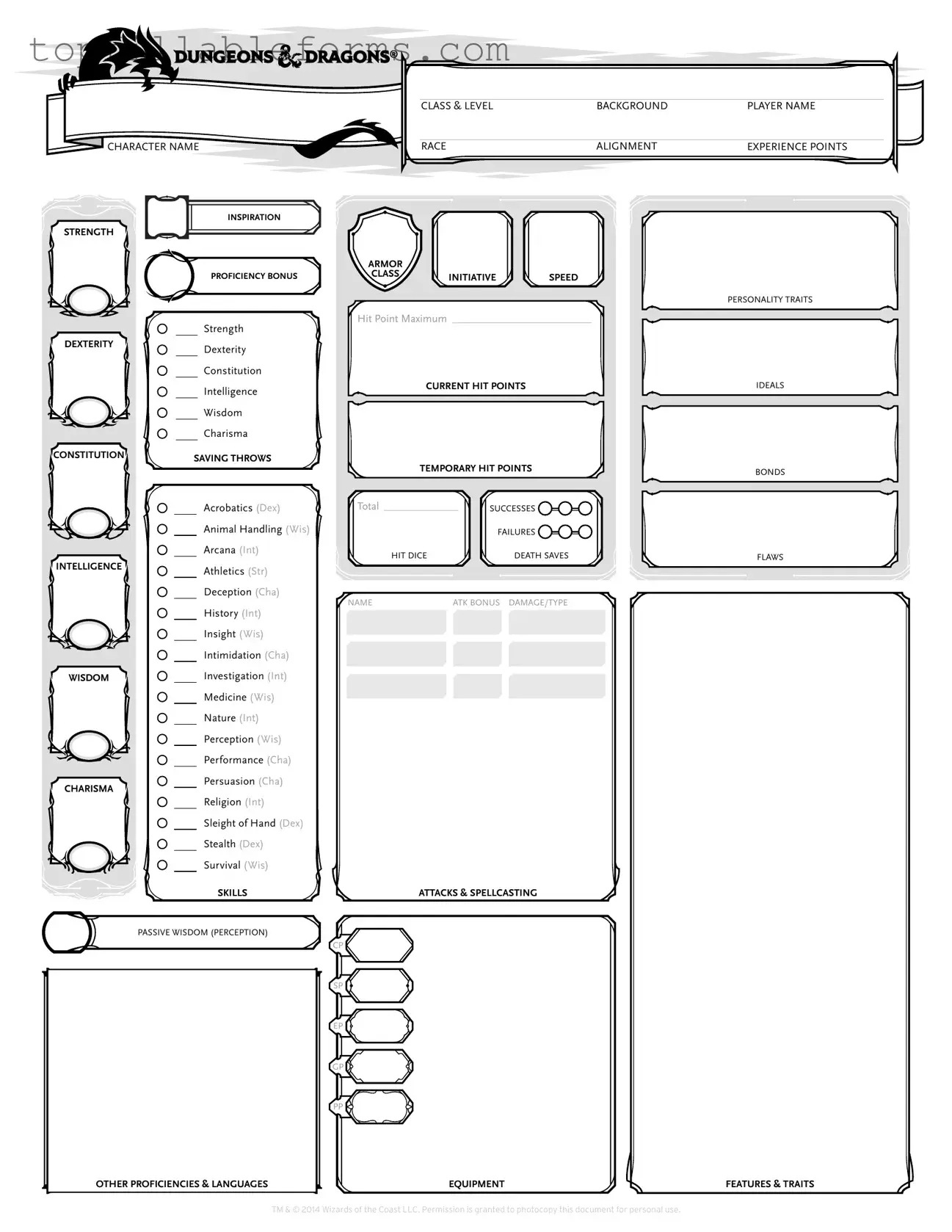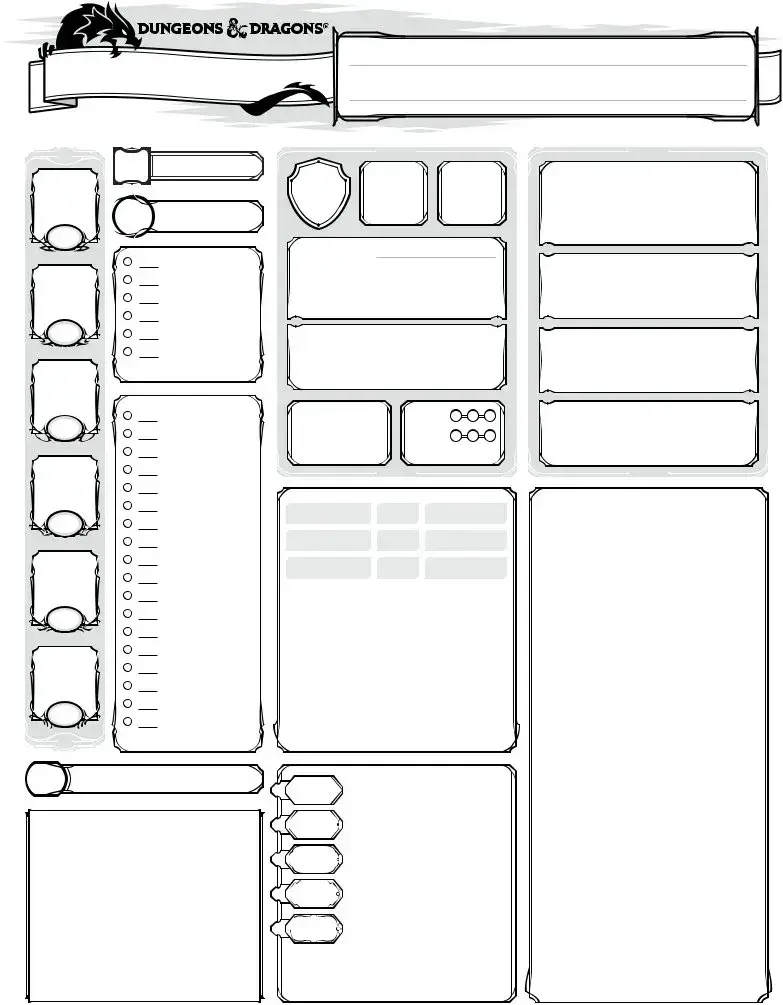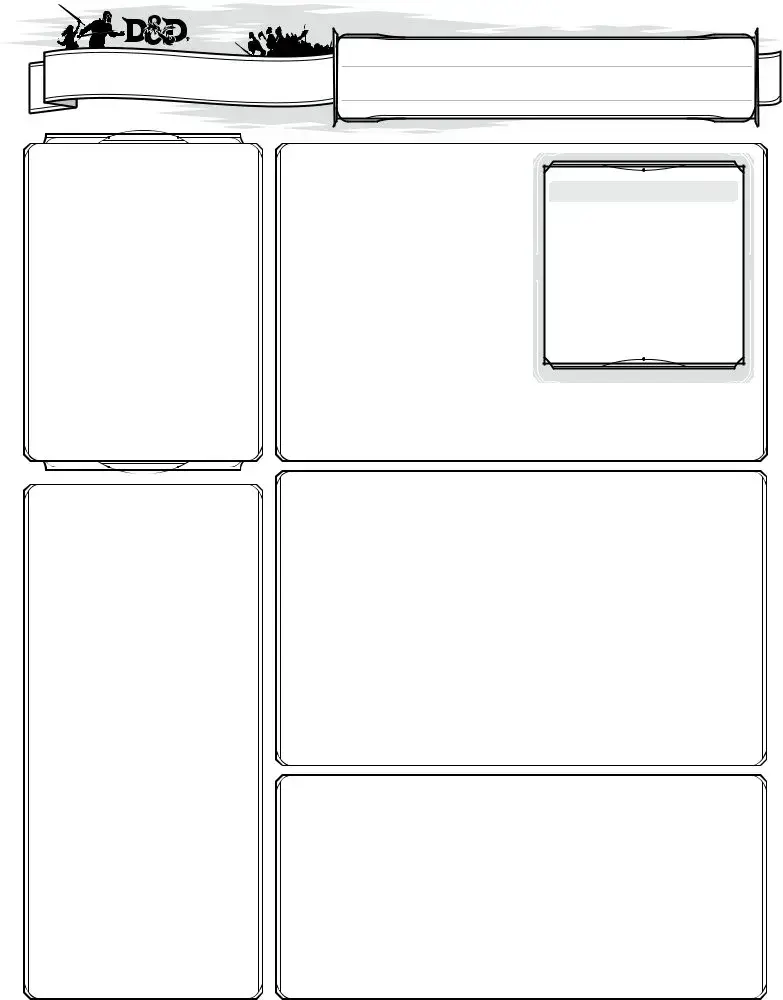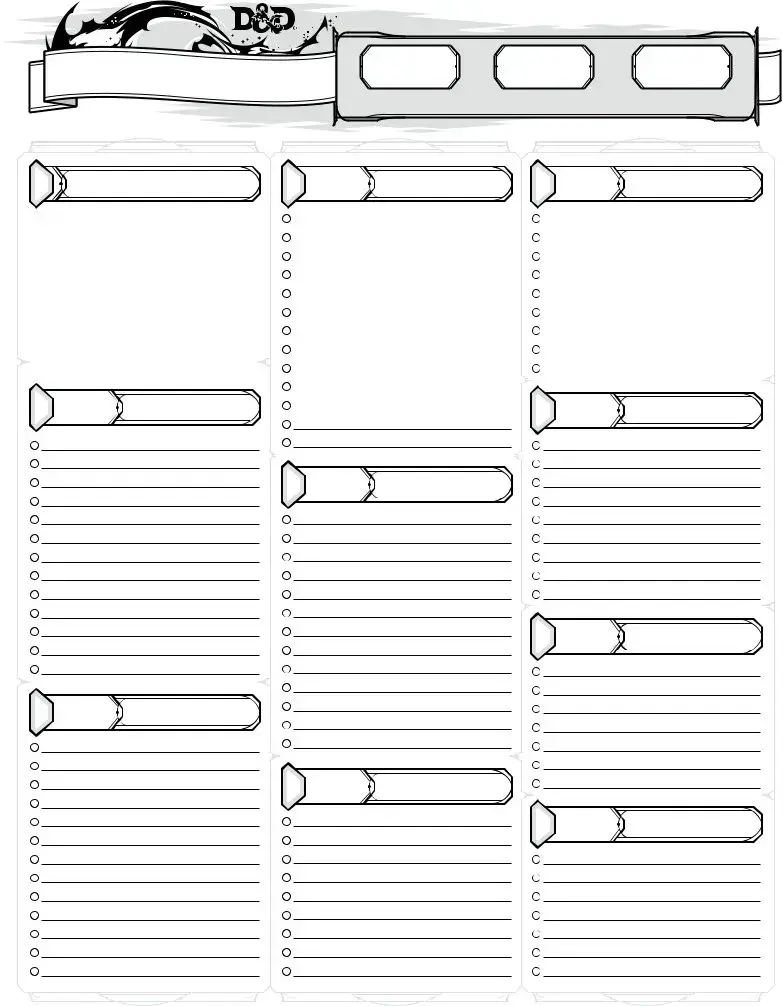Printable Dnd Character Sheet Form in PDF
The Dungeons & Dragons (D&D) Character Sheet is a vital document that players use to record and manage their character's details throughout the game. This form serves as a comprehensive overview, capturing essential information such as abilities, skills, equipment, and background. Understanding how to effectively utilize this sheet enhances the gaming experience and fosters deeper engagement with the character's journey.
Open Dnd Character Sheet Editor Here

Printable Dnd Character Sheet Form in PDF
Open Dnd Character Sheet Editor Here
Finish the form now and be done
Finish your Dnd Character Sheet online by editing, saving, and downloading fast.
Open Dnd Character Sheet Editor Here
or
▼ PDF File













